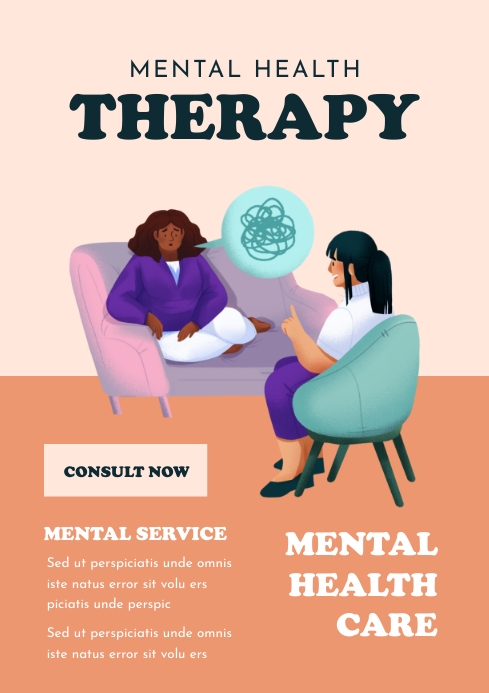Unlocking the Tricks of Mental Health: An Introduction of Counseling and Therapy Options
Mental health is a complicated and important element of overall well-being. Many counseling and therapy options exist to attend to different psychological obstacles. Each technique supplies special benefits and approaches customized to individual demands. Comprehending these alternatives is crucial for anyone looking for to boost their mental health. Marriage Counselling. What elements should one think about when checking out these opportunities? The solution may disclose a course to a healthier emotional state
Understanding Mental Health and Its Value
Mental wellness includes the psychological, mental, and social wellness of individuals, substantially affecting just how they believe, feel, and act. Its relevance can not be overstated, as it impacts every facet of life, consisting of partnerships, job efficiency, and total high quality of life. Individuals with good mental health and wellness often tend to handle anxiety better, preserve healthier partnerships, and make notified choices. On the other hand, bad mental wellness can bring about psychological distress, damaged functioning, and numerous mental problems, which might call for professional treatment. Understanding mental health is important for recognizing the indications of distress and the need for assistance. Recognition also promotes empathy and reduces preconception, encouraging people to seek assistance when essential. By focusing on psychological wellness, neighborhoods can promote settings that sustain psychological health, inevitably causing much healthier, much more resistant individuals. This foundation acts as an important action towards reliable mental health and wellness counseling and therapy alternatives.
Types of Therapy Approaches
Counseling approaches differ extensively, each tailored to satisfy the one-of-a-kind requirements of individuals looking for assistance. Among the most common types are cognitive-behavioral treatment (CBT), which concentrates on identifying and transforming unfavorable idea patterns, and person-centered treatment, which highlights empathy and approval. Psychodynamic treatment explores unconscious processes and past experiences to comprehend existing habits, while solution-focused brief therapy intends to determine remedies instead of examine problems.Additionally, family members therapy addresses relational characteristics and communication within family members, promoting much healthier communications. Group counseling supplies a communal space for individuals to share experiences and support one an additional. Other methods consist of existential treatment, which urges individuals to find significance and function, and art or songs treatment, which utilizes innovative expression as a restorative device. Each method offers distinct methods and ideologies, allowing clients to locate one of the most ideal technique for their individual growth and healing trips.
Exploring Various Therapy Methods
In the domain name of psychological wellness therapy, different treatment methods use distinctive techniques to treatment. Cognitive Behavioral Treatment emphasizes the link between actions and thoughts, while Psychodynamic Treatment explores subconscious influences on psychological well-being. Furthermore, Mindfulness-Based Techniques promote present-moment awareness as a way to enhance emotional law and general psychological health.
Cognitive Behavior Treatment
Cognitive Behavior Treatment (CBT) stands apart as one of the most commonly exercised and investigated modalities in mental health and wellness treatment. This approach focuses on the affiliation between actions, thoughts, and sensations, stressing that modifying adverse thought patterns can lead to improved emotional health and behavior modifications. CBT is structured, commonly involving a limited number of sessions, and intends to furnish people with sensible skills to handle their symptoms. It is reliable for a selection of problems, consisting of anxiousness problems, depression, and post-traumatic tension disorder. By making use of strategies such as cognitive restructuring and direct exposure therapy, CBT fosters durability and empowers customers to confront challenges head-on, making it a valuable choice in the landscape of psychological health therapies.
Psychodynamic Treatment Approaches
Psychodynamic treatment techniques supply a deep expedition of the subconscious mind and its impact on actions and emotional wellness. Rooted in Freudian theory, these methods stress the importance of very early childhood years experiences and subconscious disputes. With methods such as free association, dream evaluation, and transference, people acquire insight into their sensations and thoughts, fostering self-awareness and understanding. This therapeutic method motivates customers to reveal quelched feelings and unresolved issues, which can be essential in resolving present emotional obstacles. By taking a look at the interaction in between previous experiences and present actions, psychodynamic treatment aims to promote emotional healing and individual development. Eventually, it offers a structure for people to explore intricate internal dynamics that affect their mental wellness.

Mindfulness-Based Strategies
While typical therapies usually focus on previous experiences, mindfulness-based methods prioritize present-moment understanding as a path to psychological well-being. These methods, consisting of mindfulness-based cognitive therapy (MBCT) and mindfulness-based tension reduction (MBSR), motivate individuals to engage fully with their thoughts and sensations without judgment. Professionals discover to observe their frame of minds, promoting a higher understanding of emotional triggers and actions. This method not just relieves symptoms of anxiousness and clinical depression yet likewise enhances total mental resilience. By integrating mindfulness workouts, such as meditation and deep breathing, customers cultivate a feeling of tranquility and quality. Ultimately, mindfulness-based strategies encourage people to navigate life's difficulties with raised recognition and approval, promoting a much healthier partnership with their ideas and feelings.
The Duty of a Specialist or Therapist
An experienced therapist or counselor plays a necessary role in supporting people via their psychological health journeys. They give a safe, non-judgmental space where customers can reveal their sensations and thoughts openly. Marriage Counselling. By using various restorative techniques customized to every individual's demands, therapists aid customers explore underlying concerns that may contribute to their mental health and wellness challenges.Therapists use guidance and devices to manage stress, anxiety, anxiety, and various other emotional troubles. Their training equips them to recognize patterns in behavior and thought processes, facilitating understandings that lead to personal growth. They additionally foster a strong healing partnership, which is essential for effective outcomes.Moreover, specialists continue to be fully commited to privacy and moral standards, ensuring a relying on atmosphere. Ultimately, the duty of a therapist or counselor is to encourage individuals, motivating them to develop resilience and healthier coping approaches while guiding through life's complexities
Just how to Select the Right Therapy or Therapy Choice
Choosing the ideal counseling or therapy choice begins with reviewing private needs. It is important to comprehend individual obstacles and objectives before discovering numerous therapy designs. This fundamental action can considerably influence the performance of the picked technique.
Assess Your Needs
How can people efficiently assess their psychological health and wellness needs when assessing therapy or therapy options? First, they should review their emotional state and identify particular issues, such as stress and anxiety, partnership, or clinical depression challenges. Journaling can be a useful tool for tracking thoughts and sensations gradually. In addition, people may gain from seeking comments from trusted buddies or member of the family regarding viewed modifications in habits or state of mind. It is additionally valuable to review personal goals for treatment, such as boosting coping abilities or obtaining insight into individual patterns. Lastly, investigating numerous therapy techniques and a fantastic read their viability for specific requirements can aid in making an educated selection. Inevitably, self-awareness plays a crucial function in choosing the appropriate path for psychological health and wellness support.
Explore Therapy Styles
While passing through the varied landscape of treatment alternatives, people must take into consideration different designs of counseling to locate the most effective suitable for their special needs. Cognitive Behavior Modification (CBT) focuses on transforming adverse idea patterns, while Psychodynamic Treatment checks out subconscious procedures and previous experiences. Humanistic approaches emphasize personal growth and self-actualization, fostering a helpful atmosphere. In addition, mindfulness-based treatments grow present-moment awareness, aiding emotional policy. For those seeking framework, Solution-Focused Brief Therapy targets certain objectives and options. Group treatment gives a public setup for common experiences and support. Inevitably, individuals ought to review their preferences, comfort degrees, and certain challenges, ensuring they select a therapeutic style that reverberates with their individual trip towards mental health.
Conquering Barriers to Seeking Aid

The Benefits of Counseling and Treatment for Psychological Health
Seeking aid for psychological wellness obstacles can lead to substantial enhancements in overall wellness. Counseling and treatment supply individuals with a safe area to explore their sensations and ideas, cultivating self-awareness and personal development. These professional services equip customers with dealing techniques and analytical skills tailored to their unique situations.Moreover, therapy can decrease symptoms of anxiousness, anxiety, and various other mental wellness problems, improving emotional durability. Regular sessions promote accountability and urge individuals to set and accomplish personal objectives. Through various healing modalities, such as cognitive-behavioral treatment or mindfulness practices, clients discover to reframe unfavorable ideas and develop much healthier behaviors.Additionally, the healing relationship itself can be a resource of assistance, helping to fight seclusion and loneliness. Overall, engaging in counseling and therapy is a proactive step toward attaining mental health, making it possible for individuals to lead even more fulfilling lives.
Regularly Asked Concerns
The Length Of Time Does Counseling or Therapy Usually Last?
The period of counseling or therapy differs considerably, typically lasting from a couple of sessions to numerous months or years. Aspects affecting this consist of the person's certain needs, the type of treatment, and healing goals.
What Should I Anticipate During My Initial Session?
Throughout the first session, individuals can expect an introduction, discussion of worries, and the therapist's strategy. They might complete assessments and develop objectives, fostering a safe atmosphere for open communication and building connection.

Are There Any Dangers Related To Treatment?
Treatment can include threats, such as emotional discomfort, vulnerability, or facing painful memories. While these difficulties might arise, they can likewise result in personal growth and recovery, making the therapeutic procedure facility yet possibly rewarding.
Just How Can I Tell if My Therapist Is an Excellent Fit?
Determining if a therapist is a good fit involves evaluating convenience, communication design, and restorative approach. Positive rapport and progression towards objectives are signs of an ideal match, essential for reliable mental health and visit this site wellness support.
Will My Insurance Coverage Cover Therapy or Therapy Procedure?
Determining insurance protection for therapy or treatment sessions often requires getting in touch with the insurance coverage supplier directly. Plans vary significantly, so people must verify advantages, co-pays, and any kind of needed pre-approvals prior to going after therapy solutions. Among the most typical types are cognitive-behavioral therapy (CBT), which concentrates on identifying and altering unfavorable idea patterns, and person-centered therapy, which highlights empathy and approval. Psychodynamic therapy explores unconscious processes and previous experiences to recognize current habits, while solution-focused quick therapy aims to determine solutions rather than examine problems.Additionally, household therapy addresses relational dynamics and communication within families, promoting much healthier interactions. Various other strategies consist of existential therapy, which urges individuals to discover definition and purpose, and art or music therapy, which uses creative expression as a healing tool. Cognitive Behavior Treatment stresses the connection between ideas and behaviors, while Psychodynamic Therapy explores unconscious influences on emotional health. Cognitive Behavior Treatment (CBT) concentrates on changing adverse idea patterns, while Psychodynamic Therapy discovers unconscious processes and previous experiences.
Comments on “Cognitive Behavioural Therapy vs. Other Therapies: What Makes It Unique?”